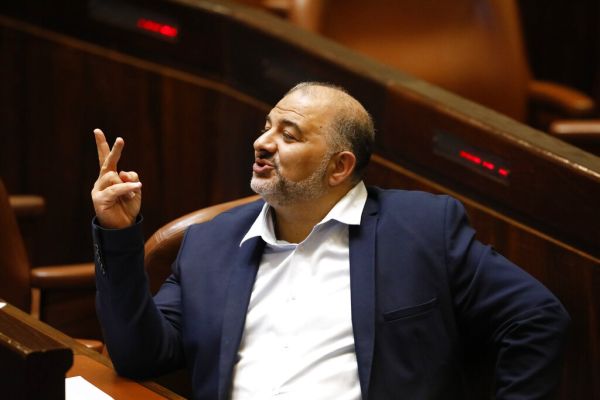Mansour Abbas pans Amnesty International’s accusations of “Israeli apartheid.”
By Associated Press
The head of an Arab party in Israel who made history last year by joining the governing coalition said Thursday he would not use the word “apartheid” to describe relations between Jews and Arabs.
Amnesty International last week joined two other well-known human rights groups in saying that Israel’s policies toward the Arab-Israeli citizens and Palestinians living in Judea and Samaria amounted to apartheid.
Critics of Amnesty described the report as both flawed and antisemitic.
“I would not call it apartheid,” Mansour Abbas said in response to a question at an online event organized by the Washington Institute for Near East Policy, a D.C-based think tank. He noted that he was in the coalition and could join the government itself if he wanted to.
“I prefer to describe the reality in objective ways,” he added, according to the English translation of his remarks, which he delivered in Hebrew. “If there is discrimination in a certain field, then we will say that there is discrimination in that specific field.”
He did not say whether he thinks the term applies to Judea and Samaria. Israel captured the territory in the 1967 Six-Day war, and the Palestinians want it to form the main part of their future state.
Abbas heads the United Arab List, known in Hebrew as Ra’am, a small Islamist party that gave crucial support to the coalition now governing Israel, which includes parties from across the political spectrum.
Arabs make up some 20 percent of Israel’s population of nearly 9.5 million. They have citizenship, including the right to vote, and have a major presence in the medical profession and universities, among other fields.
They have close familial ties to the Palestinians in Judea, Samaria and Gaza and have historically refused to join government coalitions.
Amnesty International, a London-based human rights organization, accused Israel of maintaining an overarching system of apartheid designed to ensure a Jewish majority in as much of the Holy Land as possible.
Israel views such allegations as an assault on its very existence, saying its policies are designed to ensure the survival and well-being of the world’s only Jewish state.
Abbas said he’s focused on bringing Jews and Arabs together to address social and economic challenges.
“I’m usually trying not to be judgmental, I’m not trying to say you’re racist or the state is racist, or this is an apartheid state or not an apartheid state,” Abbas said. “My role as a political leader is to try to bridge the gaps.”
